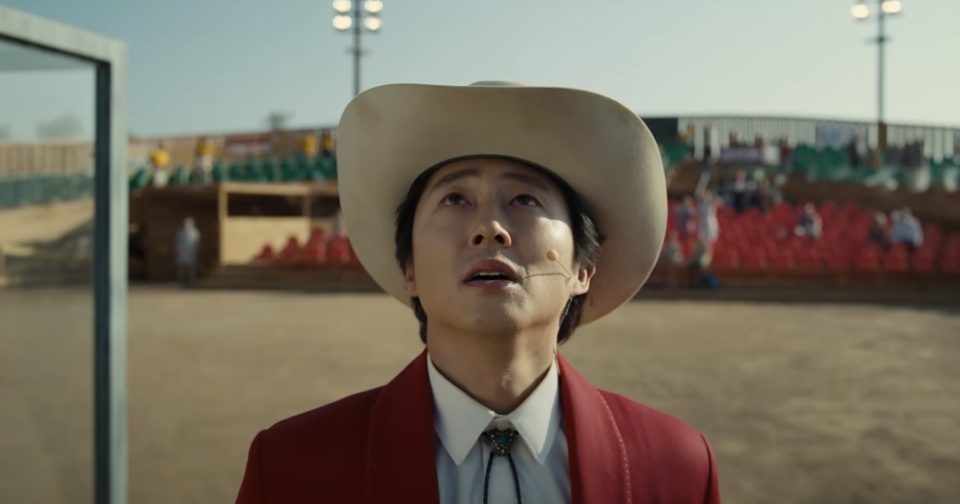For Universal Chief Donna Langley, Jordan Peele Could Be Next Spielberg — and the Key to Studio’s Future

If IP-based franchises that gross over $1 billion worldwide are the industry’s coin of the realm, Universal might as well be a pauper. Only three of the studio’s films have crossed the billion-dollar mark in the last decade, compared to Disney’s 21. And Universal chairman Donna Langley will be the first to admit that her studio is playing a different game than its major-studio peers.
“We don’t have IP,” Langley said during a keynote conversation at SXSW on Saturday, where she was interviewed by CNN’s Frank Pallotta.
More from IndieWire
In the early 2010s, as Langley took the helm of the studio, she and her team looked at several years of box-office under performers and saw a necessary change. “We redefined the word franchise for ourselves as a studio,” she said. “We knew we were not in the horror space and should be — and the rest is history there with Jason Blum. Animation was just beginning to be a part of slate strategy. And when it came to these big blockbuster movies, we put a ring-fence around it and decided for ourselves what we would invest in and what we wouldn’t.”
“That absolutely led us to creators. They are our IP,” she continued.
While Universal’s highest-grossing films under Langley’s leadership — installments of “Jurassic World,” “Despicable Me,” and “Fast & Furious” — fall under a more traditional definition of franchise movies, her vision of the studio’s future doesn’t depend on that.
There’s “The Purge” universe, which has delivered grosses north of $500 million across five films that cost less than $200 million to make. And of course Jordan Peele’s work with the studio, which began with the 2017 release of “Get Out,” which grossed $255 million on a $4.5 million budget and continues to resonate in the culture.
Langley’s vision of Universal future is reminiscent of its past, where Steven Spielberg rose to prominence in the 70s and 80s with films like “Jaws” and “E.T.”
“I do look at Jordan, in many ways, as sort of the next generation of filmmakers that will enjoy a long career in history at Universal in the way that Steven’s done,” she said.

screenshot
Similarly, Christopher Nolan’s “Oppenheimer” is among Universal’s most anticipated releases, and comes with a bonus story of how the studio wooed Nolan after his divorce from Warner Bros. “We really focus and strive to create an environment for filmmakers that is a place where they can just come and do their best work,” Langley said. “That’s what a filmmaker like Chris is looking for.”
While Paramount Global’s brass have spent recent weeks trying to convince Wall Street that “SpongeBob” and “Sonic the Hedgehog” are equivalent to Marvel, Langely articulates a strategy that’s more similar to a mini-major or even an indie distributor. MGM’s Michael De Luca talks about “treating the filmmakers like the franchise,” while A24 created one of the most enviable brands in entertainment through its backing of the bold work of filmmakers like Ari Aster.
But Langley’s willingness to go against the grain doesn’t knock Universal down a peg. Reflecting on Universal’s early-pandemic decision to embrace PVOD for first-run films over exclusive theatrical releases, Langley briefly departed from her British modesty to proudly — and rightfully — declare that it had “forever changed the industry.”
Langley was the first to throw the long-awaited rock at the 90-day exclusive theatrical window after the April 2020 PVOD release of “Trolls World Tour,” when the company announced it planned to repeat the model moving forward. The move drew the ire of AMC and Regal, which promptly banned Universal films, and gave Warner Bros. leeway to premiere its entire 2021 slate day-and-date on HBO Max and in theaters and Disney to take a similar approach for some of its films.
With the dust settled, 45-day windows are the norm for the biggest films, but Langley’s rock delivered what she considers the most important response to the idea of “meeting the audience where they are. That’s the option to go see a film in theaters, or wait for it to be on PVOD on a streaming service like NBCUniversal’s Peacock shortly after its theatrical run. (By the way, Langley expressed doubt that day-and-date will be a lasting strategy for studio films.)
“A theatrical marketing campaign, the big, global marketing campaign behind any movie, is what makes them really matter,” Langley said. “We haven’t seen movies breakthrough in streaming yet.”
Case in point: Who cares about Netflix’s most-watched movie ever, “Red Notice?”
Marketing precision is a key piece of delivering on the promise of Langley’s filmmaker-forward vision. She was singled out by the most recent USC Annenberg Inclusion Initiative study: Between 2007-2021, Universal was the most likely distributor to release a film directed by a woman of color, among the highest-performing films released by all distributors domestically.
“If you make films for a particular audience, and you really super-size that audience, and you give them something great .. they’ll show up and then if the execution is there and great … then it can expand beyond that and really cross over,” she said. “I almost hate to say it’s good business because it sounds crass, but it is good business to make movies for all different types of people.”
But still, spectacular, IP-driven tentpoles are important: The interview ended with a first-look clip of “Jurassic World Dominion” featuring Chris Pratt, Bryce Dallas Howard, DeWanda Wise outrunning velociraptors by motorcycle and airplane.
Best of IndieWire
Sign up for Indiewire's Newsletter. For the latest news, follow us on Facebook, Twitter, and Instagram.

